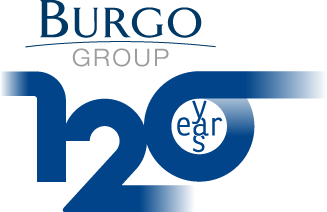Burgo Energia: challenges and opportunities
In this interview, the CEO Luca Sassoli tells us about the values of Burgo Energia, an established and active European company, its objectives, difficulties and strategic skills. Technological advances and the shift towards a sustainable transition have provided the Group with challenging tests, working towards decarbonization and the reduction of 55% of emissions by 2030. The path to energy optimization follows the objectives of the European Green Deal and aims to employ technologies that are still in research or testing phase, such as hydrogen turbines, and renewable resources.
What does Burgo Energia do?
Burgo Energia operates mainly in operation and trading on the European energy markets and in Energy Management, which supervises the facilitation and regulatory activities of the energy markets and the energy efficiency of the sites of the Group.
The operation and trading department works through a trading desk on the main European platforms and arranges gas, electricity, and CO2 for the needs of the Group with a focus on the reduction of energy costs, bypassing intermediaries, various operators, and operating directly on the markets. The department also transfers the energy produced by the power plants of the Group's sites to the network.
Burgo Energia is an ESCO, an ISO 11352 certified Energy Service Company: as such it pursues vital energy efficiency goals at the group's sites. We have several energy-saving projects underway, beneficial in obtaining Energy Efficiency certificates. We are aware that the reduction in industrial consumption leads to a reduction in gas needs and therefore a reduction in CO2 emissions, as well as a reduction in energy costs. We are achieving the ISO 50.001 certification for all the sites of the Group, including Burgo Ardennes, which, given its location and its already great production of biomass, is set to become the first site net-zero mission of the Group: this is another challenging goal.
Burgo Energia also manages the Energy Paper consortium which, with its 270 MW of interruptible power supply, is one of the main operators in the electricity market and includes about twenty industrial sites in various sectors, such as concrete, paper, and glass production.
Which skills are strategic in Burgo Energia?
The technological transition that has taken place in the energy markets in recent years has led to a major change in operational tools. Smart grids push operators to adopt a modern and technological approach that requires specific skills. For example, we are already talking about blockchain in energy transactions, so we are facing a significantly different world, which will substantially change our business in a remarkably short time.
In addition to these skills, other basic skills are also needed, including an in-depth understanding of energy markets, such as power, gas, and CO2, a knowledge of the complex mechanisms of energy facilitation for energy-intensive companies, and finally of energy efficiency technologies, not just in the paper sector.
What are the goals of Burgo Energia for the future?
Since 2018, Burgo Energia has stopped selling energy to the final consumer and has de facto completely changed its connotations. It has changed the business model, it has changed customers, it has changed the reference market and it has also changed many human resources.
In the short term, I believe that the evolution of energy markets will offer new business opportunities, particularly in the integration of energy sources. I'm talking about further integration of new fossil fuels, such as hydrogen, biomethane, biogas, etc. This will be a real revolution in the energy markets.
In the long term, Burgo Energia always remains true to its main goal: to accompany Burgo Group towards energy optimization. We are working towards an increasingly advanced efficiency, to achieve decarbonisation according to the European Green Deal targets. This is the real energy goal and also a great challenge, especially when you consider our size.
How is Burgo Group facing the challenge of decarbonisation?
Burgo Group is a significant consumer of methane gas, which is essential for our co-generation and steam production plants. Without gas, it would be impossible to produce paper at competitive costs.
That said, the decarbonisation goals are very ambitious: reaching a 55% reduction in emissions by 2030, as envisaged by the European regulation, is a truly demanding challenge. In our case, there is currently non-renewable source that could replace the use of methane gas.
The only technologies we presently have available are experimental ones, including the use of hydrogen in turbines and the recapture CO2. We are currently working on these very ambitious projects, as well as on renewable sources of energy with large-scale projects, such as photovoltaic, hydroelectricity, and bio-methane.
However, the path to decarbonisation does not pass through one single solution but requires a mix of answers. We at Burgo Energia must track them all to understand which one can be the best solution for all our plants.


